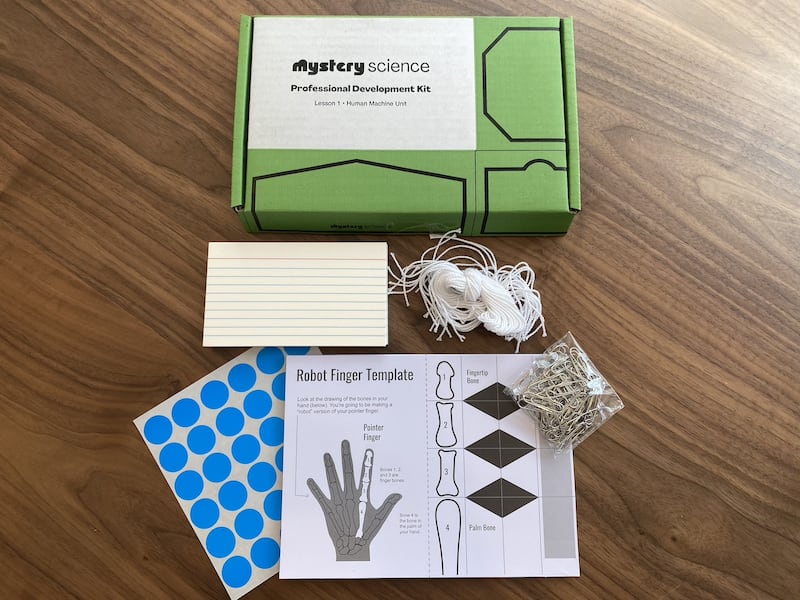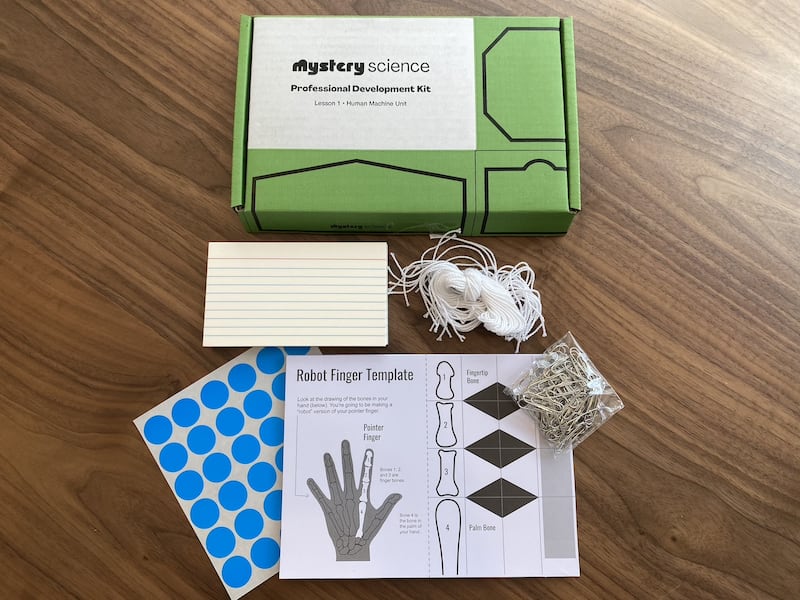
3-5 Training - Why do your biceps bulge?

You will also need scissors, rulers, and a stack of scratch paper
for each participant.



DISCUSS:
What do you think is going on inside your hands when you’re moving your fingers? Any ideas?




















Which part of the Mystery Science lesson are you most excited to try in
your own classroom? Have fun and stay curious!
Below are ideas for extending this topic beyond the activity & exploration you just completed.
- Lesson Assessment and Answer Key
- Activity Extension: Make a robot hand.
- Discussion & Video: How is your robot hand different from your own hand?
- Activities: Additional hands-on activities
- Readings: Two readings about bones and muscles.
- Online Resource: A game that takes know-how and practice.
- Video: Watch a super-fast robot hand catch anything you can throw at it.
To make a robot hand, get a piece of thin cardboard (about 6"x8" — a recycled cereal box works well) and Robot Hand Template.
Glue the template to the cardboard and cut on the dotted lines. Then watch the video on the next slide to see how to put it all together.
After students experiment with the robot hand, we suggest a class discussion.

The robot hand can't do everything your hand can do.
Ask your student to experiment and figure out what their fingers and hands can do that the robot fingers and hands can't. Ask them: If you wanted to make the robot hand more like your hand, what would you need to add to the robot hand?
Discuss this question as a class. After your discussion, watch this video to hear some of the differences the Mystery Science team noticed.
Find out how your thumb is different from other fingers and why that’s very useful in this activity.
Make a model of an arm and explore how bones and muscles work together in The Power of Togetherness from National Space Biomedical Research Institute.
These Common-Core-aligned readings are free with registration on ReadWorks. All readings include comprehension questions.
- Move Your Muscles! — How do your muscles keep you moving? (Grade 4)
- Bones on the Go! — Why do you need a skeleton? (Grade 5)



